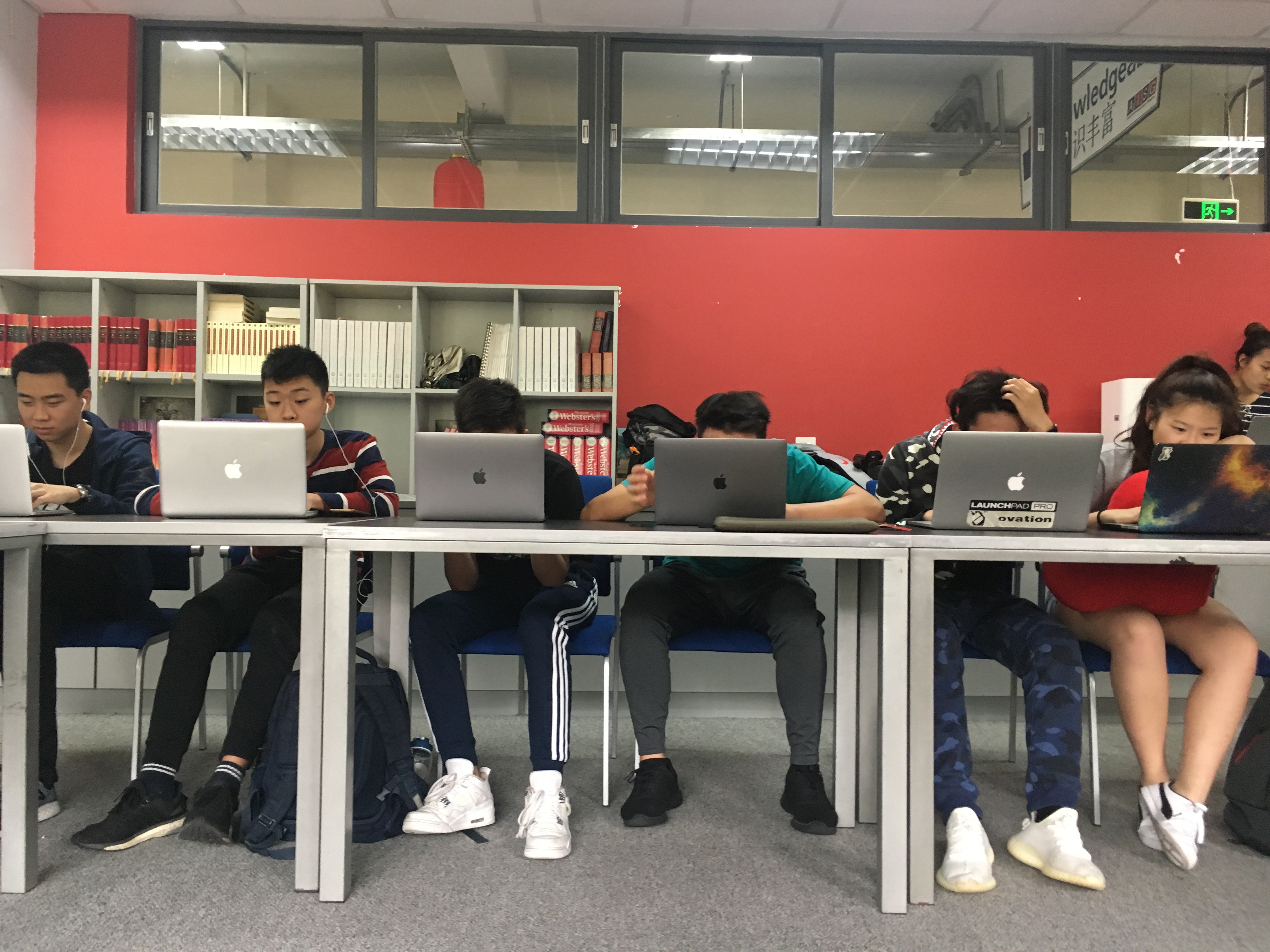
Every student in AISG is reliant on tech. Every student here owns a MacBook and uses it for school. We depend on technology to assist us with everyday tasks, and it has become an essential part of our lives as students. At AISG, we use MacBooks, cell phones, Apple TVs, and more. There are many benefits to using laptops, while there are also benefits to not using them. While technology can be helpful, one must ask if it is necessary that the majority of our education seemingly revolves around technology.
Students use laptops for a variety of reasons, with a variety of programs and purposes. Laptops can be beneficial for a number of reasons. AISG uses Microsoft Office for a number of things, such as Teams to help communicate with the class and OneNote for shared class notes. AISG also uses SP Moodle, an online website designed for organizing a classroom and assigning work. Students are expected to bring their laptops every day, to every class. Much of the class work depends on the laptops, and there are certain benefits to this. Students are able to keep track of their notes and stay organized on their laptops and are able to easily collaborate with their classmates online. With Apple TVs, students and teachers alike are able to Airplay their projects to the big screen, making it easier to work as a class. The Microsoft Office system is particularly helpful because students are able to contact their teachers and classmates through Teams or through Outlook. While laptops are efficient and helpful, there are also drawbacks.
It has been scientifically proven that it is easier to remember notes that have been written down rather than typed up. If students are required to bring laptops, it is more likely that they will type their notes up rather than writing it in a notebook. Since much of the classwork depends on the use of a laptop, that will present many problems when the WiFi is down (either at school or at home), and the fact that not all students have VPNs. VPNs are necessary to do work on a laptop since most of the sites students use for research (like Google) are blocked in China. Laptops also provide a healthy distraction to students who may have a short attention span. Under the guise of taking notes, students have access to the internet where they can spend time playing online games, checking social media, and watching YouTube. Students should be responsible for their learning and staying on-task during instruction time.
As a student who has been to a school where laptops are not used, and are in fact prohibited at school, it is very easy to see the differences and compare learning styles. At the school with no laptops, students were responsible for keeping track of their tests and papers, rather than being able to simply pull up their assignments with a simple spotlight search. Classrooms were not managed by Moodle or Teams, but rather by the teacher’s own method. Students had to carry multiple folders and notebooks around. Here, classes are either managed by Moodle or Teams, making it easy to keep track of everything. Students don’t have to carry around folders full of papers since everything is online. However, at the school with no laptops, students were forced to interact with their peers rather than stare at a screen. They had less of a chance of being distracted by their computers.
In the end, computers are both helpful and harmful. On one hand, the use of laptops and other technology can be beneficial and convenient. They are used to accomplish tasks with ease and ensure that students can use technology responsibly and efficiently, which is of growing importance in our tech-abundant society. On the other hand, it is not healthy for an entire school to be completely or mostly dependent on laptops, relying on the hope that the WiFi and VPN will work. Schools need to find a balance between using technology for convenience and efficiency while not being completely reliant on it.